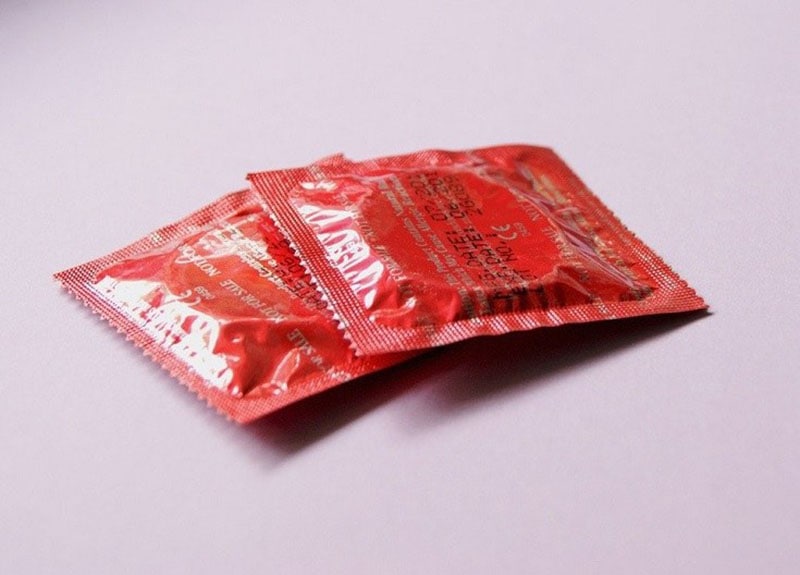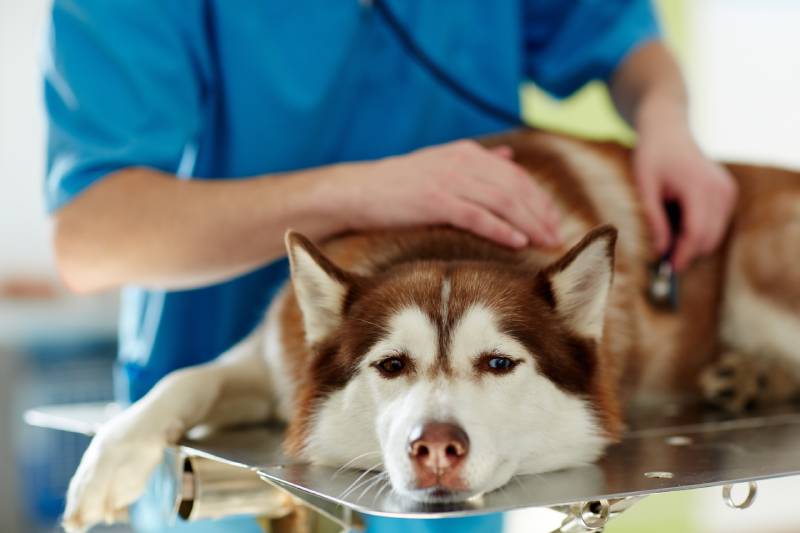The pancreas is an organ that helps with normal digestion in a dog. In some dogs, they may develop inflammation and/or damage to the pancreas, known as pancreatitis. Because the pancreas is involved with the digestive process, dogs can become severely ill. Chronic pancreatitis is when a dog suffers from long term problems of this organ. In this article we will discuss more about what pancreatitis is, what signs you may notice in your dog, how best to treat your dog, and what some long-term outcomes for a dog with chronic pancreatitis may be.

What Is Chronic Pancreatitis?
The pancreas both produces and secretes multiple enzymes and some hormones that aid in normal digestion. These digestive enzymes travel from the pancreas to the small intestine where they are released and start to help with digestion. With pancreatitis, these enzymes are released and trigger digestion early, within the pancreas itself. This will cause significant inflammation and irritation to the pancreas as it quite literally will digest itself. The term pancreatitis means “inflammation of the pancreas.”
Some dogs will suffer from a single, acute episode of pancreatitis. The dog is treated and both their clinical signs and pancreas will be back to normal. Other times, dogs will suffer from chronic pancreatitis. This occurs when the pancreas either does not revert back to being normal, or the dog continues to suffer bout after bout of pancreatitis (otherwise known as relapsing pancreatitis).
In both acute and chronic pancreatitis, your dog will suffer from problems with digestion. In chronic pancreatitis, your dog’s pancreas can suffer permanent and sometimes irreversible damage. In these cases, dogs may never have normal digestion or will suffer from problems lifelong.

What Are the Signs of Chronic Pancreatitis?
As discussed above, the pancreas is involved with the digestive tract and act of digestion. It both produces and secretes multiple digestive enzymes as well as the hormone insulin. If your dog is suffering from pancreatitis, the classic signs are:
- Nausea
- Regurgitation
- Vomiting
- Anorexia
- Abdominal pain
- Drooling
- Lip smacking
- Gagging
- Food aversion (sniffing food and walking away or even trying to bury food)
- Dry heaving
Some dogs will also develop diarrhea which can vary in severity from mild to severe, bloody, watery diarrhea.
It’s not uncommon for dogs to have significant abdominal pain, abdominal distension, and sometimes fluid build-up within the abdomen when they have pancreatitis. Dogs often feel awful, and are lethargic and just not themselves. You may notice these signs in your dog out of nowhere. Other times some dogs will show abnormal signs after they eat specific foods or certain types of foods (e.g. high fatty foods or human foods).

What Are the Causes of Chronic Pancreatitis in Dogs?
This is the million-dollar question! In many dogs, a cause of chronic pancreatitis is never found. Your dog may be completely normal one day, and the next day wake up vomiting, lethargic, and suffering from abdominal pain. Unfortunately, idiopathic, or no known cause, is often the finding.
Other dogs may be prone to GI and/or digestive issues because of other diseases. Dogs with IBD (Inflammatory Bowel Disease), intestinal lymphoma, dietary allergies, diabetes mellitus, and kidney disease may be more prone to developing pancreatitis. Sometimes this is due to hormonal, blood sugar, and enzymatic imbalance to the body. Other times it can be due to diet.
In other words, if your dog is on a specific diet due to their disease, and they then receive a highly fatty meal or get into the trash, this may trigger a cascade in the body thought to be the cause of pancreatitis.
How Do I Care for a Dog With Chronic Pancreatitis?
Some dogs will only suffer from mild signs of pancreatitis and can be treated as an outpatient through your regular veterinarian. Other dogs may suffer from severe bouts of pancreatitis, requiring hospitalization and aggressive care. In either case, your veterinarian will want to give medications for nausea/vomiting, anorexia, pain, and fluid support. Depending on how severely ill your dog is will determine if they will get oral medications, injections through an IV catheter, or potentially injections under the skin or within the muscle.
Long term, chronic care will also consist of the above treatment. In addition, many dogs with chronic pancreatitis will be put on probiotics to help with chronic GI upset and diarrhea. It’s almost always recommended that both acute and chronic pancreatitis patients be put on a low-fat diet. Ideally, this is a prescription diet that is commercially made. This will ensure that your dog is getting a balanced diet while consuming palatable, low-fat food.
If you’d prefer to make a homemade diet for your dog, it’s strongly recommended to work with a veterinary nutritionist. Certain vegetables, grains, and ingredients may be easier or more difficult for your dog’s GI tract, pancreas, and digestive enzymes to process. Therefore, just throwing together a “low-fat” chicken and rice meal with vegetables is not appropriate.
Some dogs with chronic pancreatitis will need to be on this low-fat diet life-long, in addition to only receiving low-fat treats. Absolutely no table food and/or human food should be given as these dogs will often have severe flare-ups if they receive any type of food outside of their normal diet. Think of a person with severe IBS – if they eat any little thing they are not supposed to, they often have severe vomiting and/or diarrhea. The same can be said for dogs with chronic pancreatitis.

Frequently Asked Questions (FAQ)
Is Pancreatitis Contagious to My Other Dog?
No. Pancreatitis, whether acute or chronic, is not a contagious condition. However, because many cases of pancreatitis are spontaneous and idiopathic, it’s possible that dogs within the same litter and/or breeding line may also be prone to the condition. While a genetic component has not been identified, cases where no known cause is found make a congenital component compelling.
Will Chronic Pancreatitis Affect My Dog’s Lifespan?
Potentially. If your dog continues to have severe, or even moderate bouts of chronic pancreatitis, this could in turn shorten their lifespan. The dog needs the pancreas for vital hormones and digestive enzymes. If the pancreas is constantly attacking itself, causing it the inability to function normally, eventually your dog may become ill to the point where medications are not helpful.

Conclusion
Chronic pancreatitis is a condition that can affect any dog breed, of any size and age. It can occur spontaneously, after your dog ingests food they shouldn’t, occur secondary to other underlying diseases, or have no known cause. Mild, acute bouts of pancreatitis can often be treated on an outpatient basis with prescribed medications and diet by your veterinarian. However, if your dog suffers from chronic or recurrent bouts of pancreatitis, they will likely need to be on a prescription low-fat diet long term. In addition, they will likely be unable to receive any new treats and/or food, and have to take multiple maintenance medications and supplements. Some dogs will become so ill that they will need to be hospitalized and aggressively treated.
While most dogs can be successfully treated for pancreatitis, chronic episodes can affect your dog’s long-term quality of life and shorten their lifespan. Treatment, management, and long-term care should always be completed under the supervision of a licensed veterinarian and sometimes a board-certified veterinary nutritionist.
Featured Image Credit: Varvara Serebrova, Shutterstock











